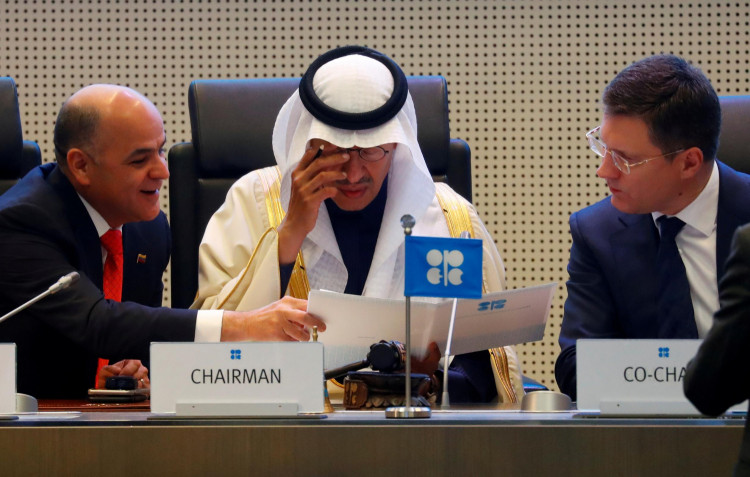Oil rallied for a second consecutive day on optimism that OPEC and its member-states would further cut oil output as global energy demand falters.
Stock futures were up 0.5 percent on Wall Street late Thursday after a body of market analysts from the Organization of Petroleum Exporting Countries recommended to trim down production by an extra 600,000 barrels per day.
But Russia kept mum on the recommendation and said it needs more time to decide. There is some hope that OPEC will support the market, Michael Loewen, chief of commodity planning at Scotiabank, stated.
OPEC's recent output reductions still left global markets with lots of supplies and Russia has been noncommittal to adhere to these, "so that also casts doubt on what the country is willing to do in this case," Loewen said.
Bloomberg quoted participants during Thursday's OPEC meeting in Vienna, Austria as saying that Russia remained opposed to further reductions though it does not oppose the extension of current ones.
The government's opposition is hardly surprising: since the price collapse of 2014, Russia has regularly made allocations for lower oil prices compared to the actual ones, and as a result, price drops are far more robust than Saudi Arabia. It has also consistently indicated that it is making a compromise with major oil players to support the cutbacks.
So far, prices have gone down 17 percent as a result of a sluggish output in other parts of the globe. West Texas Crude increased 20 cents to settle on the New York Mercantile Exchange at $50.95 a barrel after earlier gaining as much as 2.9 percent.
On the London-based ICE Futures Europe exchange, Brent traded 35 cents lower to settle at $54.93, placing its premium over WTI at $3.79.
According to sources cited by Al Jazeera, Saudi Arabia is calling for further cutbacks of 500,000 barrels a day. Russia opposes this, and may have another reason for its resistance this time; further cuts may just not work.
Libya's oil output recently fell about 1.3 million barrels per day, to about 300,000 BPD due to a continued blockade of its oil export terminals which also resulted in several fields being shut down. This translates to a drop of as much as 1 million BPD. However, prices have remained indifferent to this fall in world production.
OPEC's capacity to cut oil output is "quite limited as it is," Ryan Fitzmaurice, Rabobank's commodity planner, said. Since the NATO-support revolution against Qaddafi, Libya's oil production has fallen to its lowest level.
Last month, in a temporary ceasefire, the warring factions attended an international conference in Berlin to iron out their long-standing differences.






